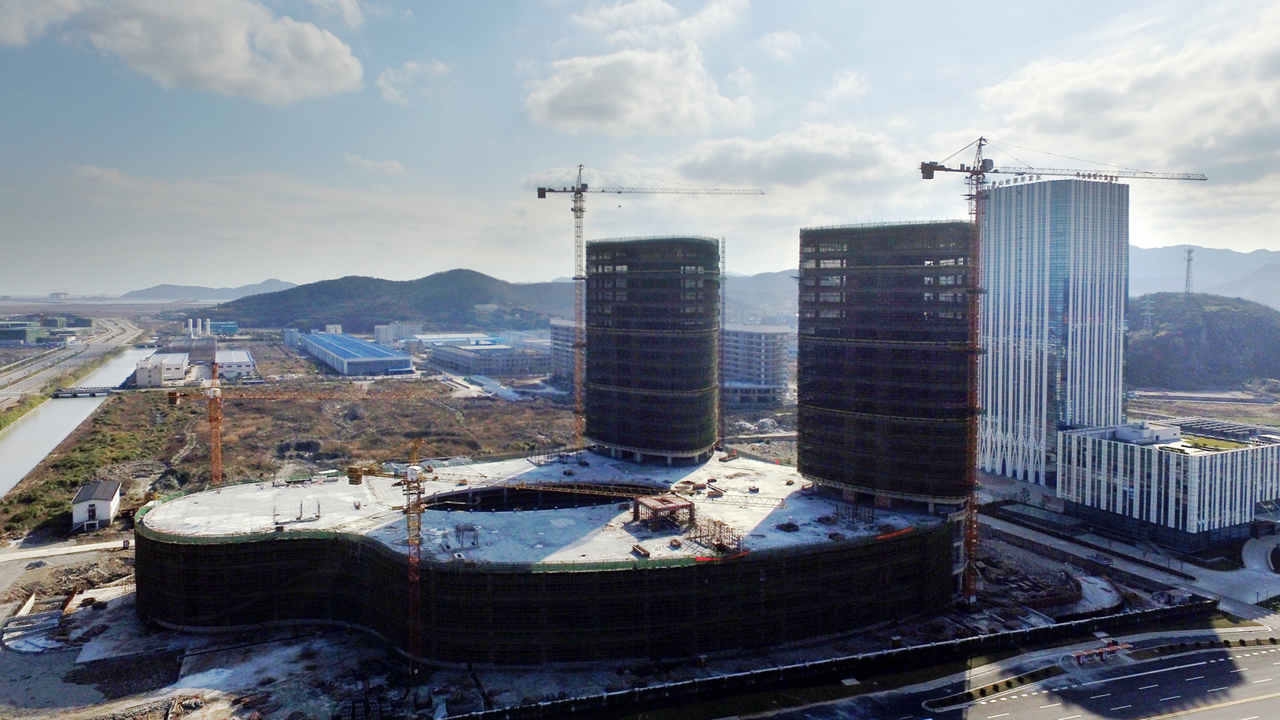By CGTN’s Ming Tian
China will set up seven new Free Trade Zones (FTZs) in Liaoning, Zhejiang, Henan, Hubei, Sichuan, Shaanxi provinces and Chongqing municipality, according to the Ministry of Commerce on Friday. Vice Minister Wang Shouwen said the decision would further the country's efforts in reform and innovation, while upgrading its level of opening-up.

Zhejiang Free Trade Zone under construction, in Zhoushan port, Zhejiang Province, on January 24, 2017. /CFP Photo
The government aims to focus on cutting red-tape and providing better regulation and services, as well as a more convenient business environment. Also, China will continue upgrading its established FTZ in Shanghai. Wang said the seven newly set up FTZs would bridge the country's several development initiatives.
"Our FTZ operation would seek replicable and scalable outcomes we could learn from when we expand our FTZs nationwide. Second, we are serving for the national initiatives, including the One Belt One Road initiative, Yangtze River Economic Belt and so on. Thirdly, we will be looking for differentiated experiences suited for various places," Wang said.

Wang Shouwen, Vice Minister of Commerce. /CFP Photo
China's first FTZ in Shanghai was set up in September 2013. 18 months later, more FTZs were approved in the provinces of Guangdong and Fujian as well as Tianjin municipality.
undefined
The expansion is based on the concept of learning by experience. Chinese President Xi Jinping once said the Shanghai FTZ was akin to seeds being cultivated on test fields that could be sowed in other places. For instance, a pilot program in Shanghai FTZ lets foreign companies set up based on registration rather than approvals.
FTZs have become new drivers of China's economic growth. For the first two months since the Shanghai FTZ was implemented, Shanghai's total trade hit 480 billion yuan (69.7 billion US dollars), 23 percent more than a year earlier. Surveys show that over 80 percent of businesses within the Shanghai FTZ said their operating environment had improved, while 95 percent are confident in their development outlook.









